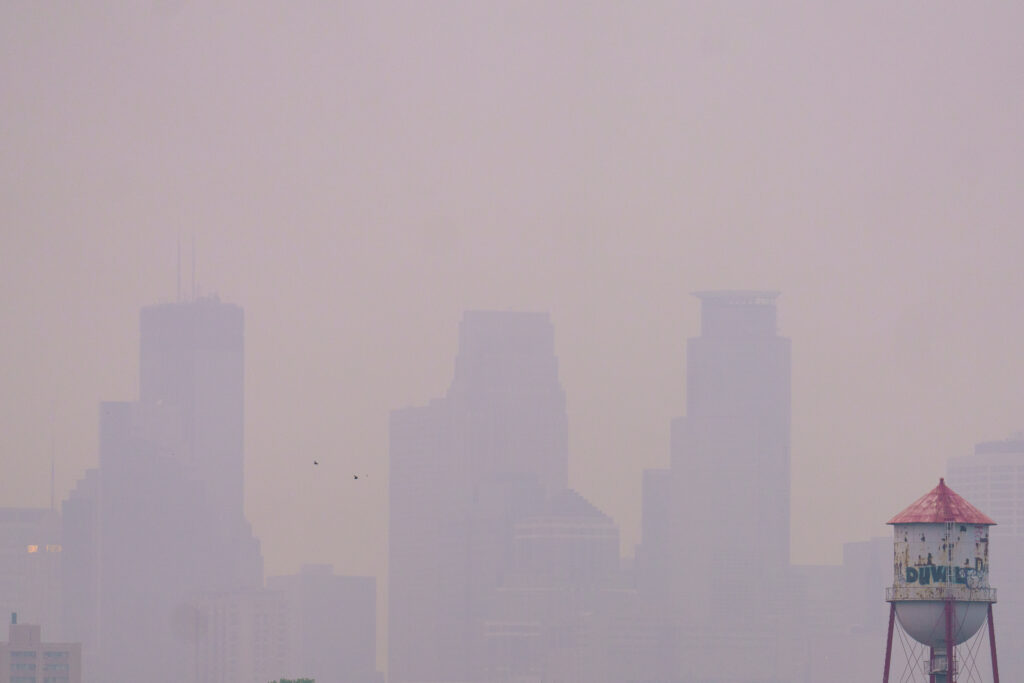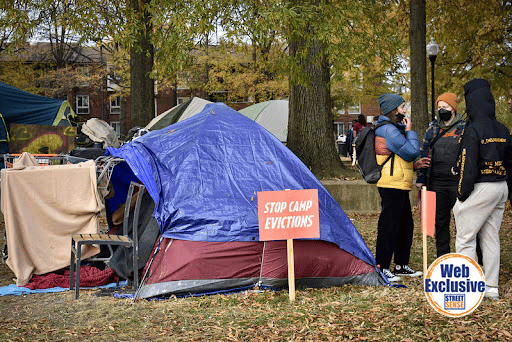At first, it was like any other day in Union Market. Businesses opened, people commuted to work, families milled about and cops roamed the streets. Nothing seemed out of the ordinary until the police shut down all of 4th St. NE to traffic.
Then came the smell. The air reeked of gas, and it was nauseating to be outside, even for a few seconds. That’s when I knew something was wrong, and I knew who was to blame: Washington Gas.
Since no one came to inform us of what was going on, I ventured out to ask one of the construction workers on the corner. Turns out it was a gas leak – one of the construction workers hit a gas line behind the Batley apartments – and we were breathing in excessive amounts of toxic methane gas.
Methane, often referred to as “natural gas,” is a deadly greenhouse gas more than 80 times more powerful at heating our planet than carbon dioxide, and it’s more dangerous – because Methane can explode. D.C. residents are at particular risk for these explosions because D.C. has some of the oldest underground methane gas pipes in the country, and these pipes are leaking more than two times the amount of gas than the average U.S. city.
There are more than 5,000 gas leaks in the District, some of which are so dangerous that they could potentially explode at any moment, posing a severe and immediate threat to the city’s residents, especially to those already wrestling with poverty and homelessness. These explosions often leave people temporarily, if not permanently, houseless.
According to EffectiveCoverage.com, renters who make less than $30,000 maintain renters insurance only 25% of the time, meaning when unexpected events happen like a gas explosion, they are shouldered with the entire cost of repair or securing a new home – a nearly impossible ask for those already stuck in the violent cycle of poverty.
According to a study published last year, the density of gas leaks in U.S. metropolitan areas increases as the number of people of color increase and the median household income decreases. Not only does this make these communities more at risk for explosions but it also causes more health issues.
The methane Washington Gas pumps into our homes poses serious health risks. including asthma, other respiratory illnesses, cardiovascular problems, and early death. For those with asthma or other pre-existing conditions, methane aggravates these conditions and increases chances of hospitalization. A recent study concluded that gas stoves cause 12.7% of childhood cases of asthma nationwide, and the brunt of that impact falls on low-income and houseless communities and communities of color.
Methane is the main component of ground-level ozone, so those forced to spend more time outside and in areas of multiple leaks are more likely to be exposed to this air pollution, a known health hazard both physically and mentally. On top of this, D.C.’s public housing is a mess, and residents have little power to have safety issues like gas leaks addressed.
In March 2022, a gas explosion in Silver Spring destroyed a four-story apartment building, leaving 14 people hospitalized and more than 200 people temporarily houseless. This easily could have been the fate at the Union Market apartments. It’s a miracle it wasn’t, especially given Washington Gas’ total lack of communication once they heard about the leak. Only the Batley apartments were evacuated; all other businesses, even La Cosecha which is connected to the Batley, were forced to continue on in a toxic, potentially explosive environment. Most businesses only knew thanks to communication from Union Market representatives, not Washington Gas.
Despite the immense dangers of methane, Washington Gas wants to spend $4.5 billion on replacing these pipes. If Washington Gas gets their way, DC residents will be breathing in toxic methane fumes for decades to come, and many of us will continue to live in fear that at any moment, we could be the victim of a gas explosion. Not to mention, the project makes meeting DC’s climate goals of powering the city with 100% renewable energy by 2032 impossible, accelerating our descent into climate chaos.
However, it doesn’t have to be this way. The DC Council and the Public Service Commission (PSC) have the power to stop Washington Gas, and they must. It’s time to electrify DC and prioritize those in communities without houses or with low incomes through fully-electric public housing and funding for retrofitting in low-income homes.
Washington Gas’ only care is to fatten their pocketbooks. The DC Council and PSC’s response will tell us whose side they’re really on.
Reilly Polka is an organizer with the local climate activist group Extinction Rebellion DC





